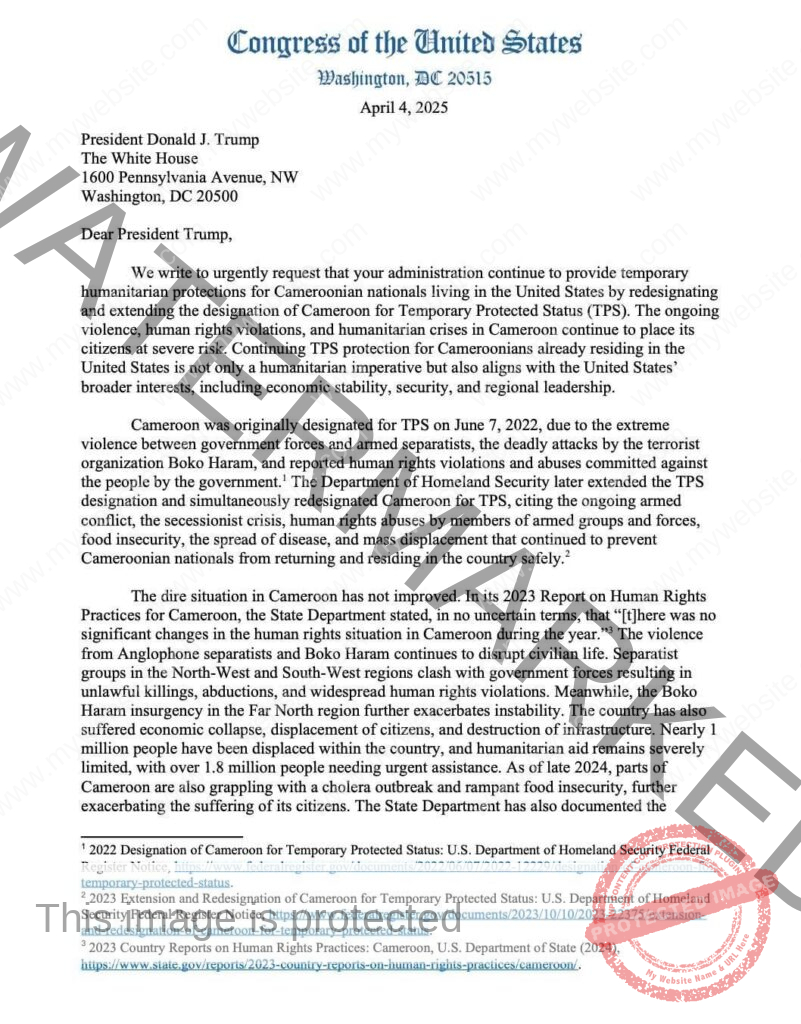Washington, D.C. — The United States Department of Homeland Security (DHS) has granted a final two-month extension to Cameroon’s Temporary Protected Status (TPS), pushing the programme’s expiration date from 7 June to 3 August 2025. The decision offers a short reprieve to thousands of Cameroonians residing in the U.S. under humanitarian grounds.
TPS, a status granted to nationals of countries facing armed conflict or natural disaster, was initially set to end this week. However, following internal reviews and inter-agency consultations, DHS concluded that while the situation in Cameroon has evolved, a brief wind-down period was warranted.
Homeland Security Secretary Kristi Noem confirmed that Cameroon no longer meets the legal criteria for continued TPS designation. Nonetheless, the 60-day extension comes shortly after a formal appeal by more than twenty U.S. lawmakers, urging the Trump administration to reconsider the programme’s abrupt termination due to ongoing insecurity in the country’s English-speaking regions.

The Southern Cameroons conflict —now in its eighth year—has displaced hundreds of thousands and continues to see serious human rights violations. Despite this, the U.S. maintains that conditions no longer justify the emergency designation.
Cameroonian nationals under TPS have now been advised to prepare for the programme’s conclusion, with the DHS encouraging voluntary departure and offering access to official resources through the CBP One mobile app.
Critics argue the move is premature. “The conflict in the English-speaking regions is far from over,” said a humanitarian analyst familiar with the region. “The Cameroonian government is still borrowing heavily to sustain a costly military campaign against separative movements.”
As the extension ticks down, advocates warn that many TPS beneficiaries could face detention or deportation should they remain in the U.S. beyond the deadline without alternate legal pathways.
With the war in Southern Cameroons continuing and international mediation efforts faltering, many now fear that the end of TPS protection may expose vulnerable Cameroonians to renewed threats upon return.